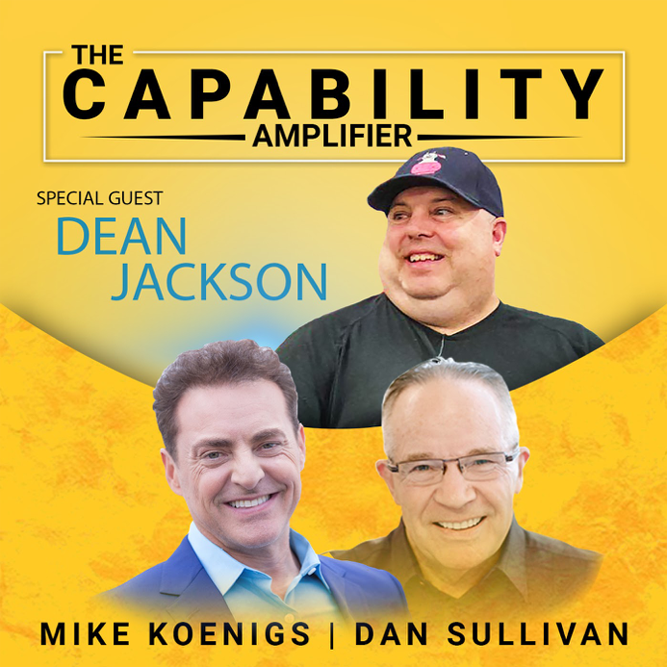How To Build An Army Of Referral Partners with Dean Jackson
Episode 53

Welcome to Part 2 of my interview with the incomparable Dean Jackson. During this episode, we discuss removing your mental blocks in order to get more quality referrals without feeling gross about how you got them.
We show you how to build an army of referral partners and grow customer relationships, and we provide lots of tips and strategies that Dean has never shared before. Let’s get into it!
Dean has been fascinated by referrals for a very long time, and it’s something he’s spent many years studying. He sees the practical applications of “how to orchestrate referrals.”
Through his study, Dean figured out that “the reason that people often don’t get as many referrals as they could is because they have a mental block about asking for them.”
They think that’s what they’re doing. They’re actually asking for referrals, and as soon as you say that, you’ve automatically put it in the category of “somebody is doing a favor for you.”
But that’s not at all what’s happening. That’s not why people refer.
A lot of times, people who are business owners or service people feel reluctant to ask for or even bring up referrals because it feels like showing weakness or it feels like they’re saying, “I can’t get business on my own and I need you to help me,” so they block themselves.
Let’s clear up this misconception right now. The reason that people refer anything is not as a favor to you, but as a favor to their friend. They want their friend to have the result or the experience that they had. And the only way they’ll do that is if they feel that you are definitely going to make them look good because what they want out of it is to feel good. And how they feel good is when they recommend something to somebody and are acknowledged later for having recommended it.
There’s no difference between this and the way we recommend books, restaurants, and movies. We are social creatures. We’re genetically wired and predisposed to share good things with our “tribe.” It goes back to our tribal instincts, and the reason we formed a society was so that we could pool together for raising the quality of life and the productivity of the whole group—everybody using their strengths and what they’re good at for the benefit of everybody.
There’s a motivation that Dean calls the secret psychology of why people refer. It’s that moment when I recommend something to you that you have never heard of, and it brings value to you and you acknowledge that value. What happens is, for that moment, I am now at a higher status in the tribe than you are. It raises my status right away because I’m bringing value.
If I’m a taker, I’m not bringing value; I’m not contributing anything new and that puts my position in the tribe in jeopardy. We’re wired to continually add value among our friends and closest people. We want to do that.
Now, we need to look at the mechanics of how referrals actually happen to bring it down to something actionable. What Dean has discovered is that all referrals happen as a result of conversation, and in those conversations, three things have to happen.
First, the person needs to notice that the conversation is about your category of business. Second, they have to think about you. And third, they have to introduce you to the person they had the conversation with. These three things all have to fire in order for a referral to take place.
For example, Dean used to do big real estate seminars all over the country and had the opportunity to do live testing. He would ask 10 people to stand up and tell the story of the last referral they got. A typical scenario and response would look like this: “I got a call from Joan who said that she was friends with my client Bill, and that I helped Bill sell his house, and asked if I could you help sell hers.”
That’s 80% of how referrals come in. Dean calls these passive referrals. The other 20% of the stories he heard were along the lines of, “I got a call from my client Bill who was talking with his friend Joan. She’s going to be selling in her house. You should give her a call.” These are called reactive referrals, because now you have to do something. “You have to call Joan and connect with her” compared to a passive referral, which was a one-step process.
I absolutely love collaborating and inventing with Dean because he’s such a brilliant guy and problem solver. You’re going to get a HUGE download of super valuable information in this episode. Go listen to the whole thing right now! Enjoy! -Mike
Get A Free Capability Amplifier Business Growth Toolkit & Know When a New Episode is Released!
Just enter your name and email address and we'll notify you when our latest episode has arrived! Don't worry...we hate spam too and respect your privacy.


